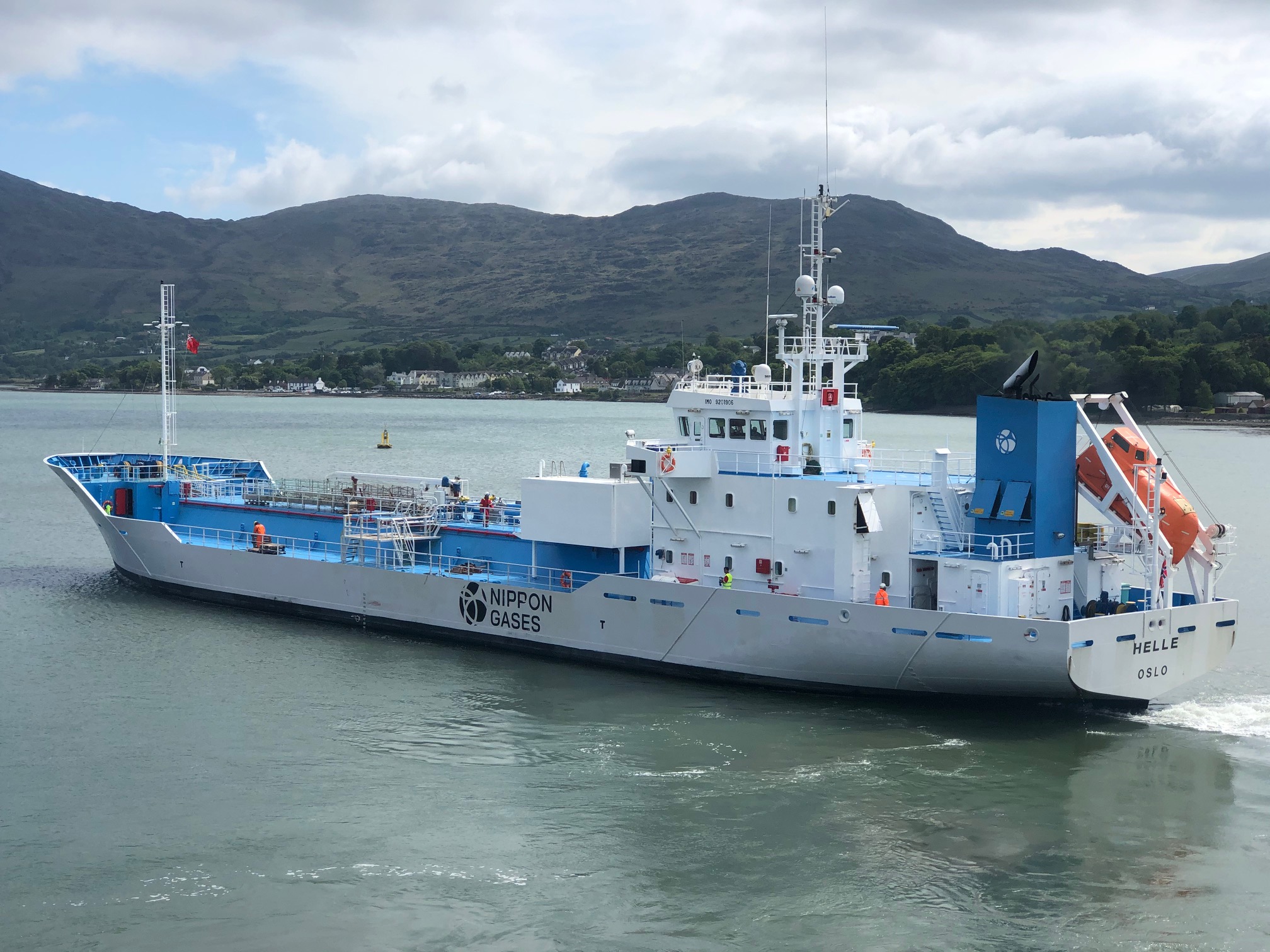MOL is investing in Norwegian Larvik Shipping. The combination of the expertise of the two companies will enable them to contribute to carbon dioxide capture utilization and storage (CCUS) projects around the world.
Liquefied CO2 ocean transport plays a key role in carbon dioxide capture utilization and storage (CCUS) value chains as a means of effectively connecting collection sites with storage or usage sites. CCUS is drawing attention as a technology to collect and store CO2 or use it effectively, and a step toward realizing a low-carbon society. According to a report by the International Energy Authority (IEA), CCUS targets a 15% reduction in cumulative CO2 emissions by 2070. This is expected to contribute to a reduction of about 6.9 billion tons per year when carbon neutrality is achieved.
Larvik Shipping is one of very few companies in the world qualified to operate liquified CO2 vessels for food grade CO2. Food Grade CO2 is used mainly by hospitals, breweries, and the food industry. Larvik Shipping has operated industrial liquefied CO2 vessels in Europe for over 30 years and has a strong track record in safe transport of liquefied CO2 and extensive cargo-handling know-how. Operation of liquified CO2 vessels for food grade CO2 will be a continued focus for Larvik Shipping going forward.
MOL will therefore enter the liquefied CO2 ocean transport business, which is positioned for significant growth in step with the increasing adoption of CCUS. MOL will contribute to further expansion of the business by combining its accumulated expertise and technological capabilities in safe operation with Larvik Shipping’s knowledge and solid experience. Both companies will discuss the adoption of larger ships with an eye toward expanding both upstream and downstream and in the CCUS value chain. Details of the deal and amount invested were not revealed.
“Liquefied CO2 ocean transport plays a key role in carbon dioxide capture utilization and storage value chains as a means of effectively connecting collection sites with storage or usage sites,” MOL explained in a release today. This maritime carbon capture is drawing attention, MOL said, as a step towards realizing a low-carbon society.
Other Japanese companies are also eyeing the CO2 seaborne trade.
Sources: Mitsui OSK Lines (MOL) and Larvik Shipping
Photo: Larvik Shipping





